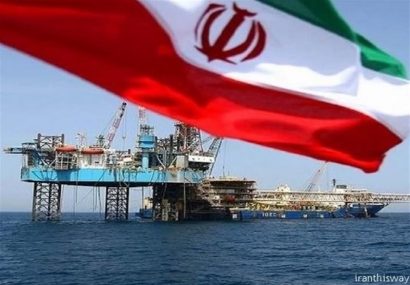Iran Plans to Boost Oil Production by 400,000 Barrels by Next Summer
TEHRAN (Iran News) Bord outlined two key technological strategies driving NIOC’s efforts: leveraging cutting-edge technology and utilizing artificial intelligence (AI) to stay ahead of challenges. “We’ve devised several programs based on these strategies,” he said, highlighting AI’s role in reservoir management as a flagship initiative. He revealed that a recent meeting with an Iranian expert has sparked collaborations in this domain.
Bord noted that NIOC has launched pilot projects using AI for enhanced oil recovery and drilling operations. “In a neighboring country, AI has boosted production by 10% across 25% of its fields,” he cited as an example of the technology’s potential. He also called on knowledge-based firms to join efforts to increase output, with the 400,000-barrel target set for next summer.
The NIOC chief reported significant progress over the past six months, stating, “We’ve achieved strong figures in both production and exports.” He added that gas production records were broken multiple times during the 14th government, peaking at 1.115 billion cubic meters. However, he expressed concern over soaring gas consumption, describing it as rising “relentlessly.” Despite the capacity to produce one billion cubic meters—a substantial figure—demand continues to outpace supply.
Under the Seventh Development Plan, NIOC aims to elevate gas production to 1.35 billion cubic meters, but Bord cautioned that even this target may not resolve the supply-demand imbalance. “Current consumption has already reached the level we’ve set as our goal,” he explained.
Bord highlighted NIOC’s push toward digitalization and smart technologies, with implementation expected soon. Over the past six months, the company held more than 15 meetings with technologists, elites, and young talent, yielding promising results from its research and engineering divisions. He invited experts and tech firms to submit proposals, announcing an upcoming formal call for collaboration with knowledge-based companies.
Addressing challenges, Bord noted that while many tech firms offer valuable innovations, operational execution often falters. To bridge this gap, NIOC plans to oversee the deployment of these technologies in oil fields and operational labs. He also emphasized improving recovery rates, pointing out that southern Iran’s fields average a 25% extraction rate— a figure that could rise with technological advancements.
Bord underscored the need for broader industry-tech collaboration, welcoming any ideas that could enhance efficiency. He revealed an ongoing partnership with an Austrian university to adopt state-of-the-art technologies. “Beyond smart machinery management, we need new innovations to boost productivity and support the economy,” he said, crediting NIOC staff for strong oil and gas output despite sanctions and undisclosed challenges over the past six months.
Iran’s oil exports have also remained robust during this period, Bord added, signaling a positive outlook as the country pursues its production goals.
End of Report
- source : IRAN NEWS ECONOMIC DESK






























